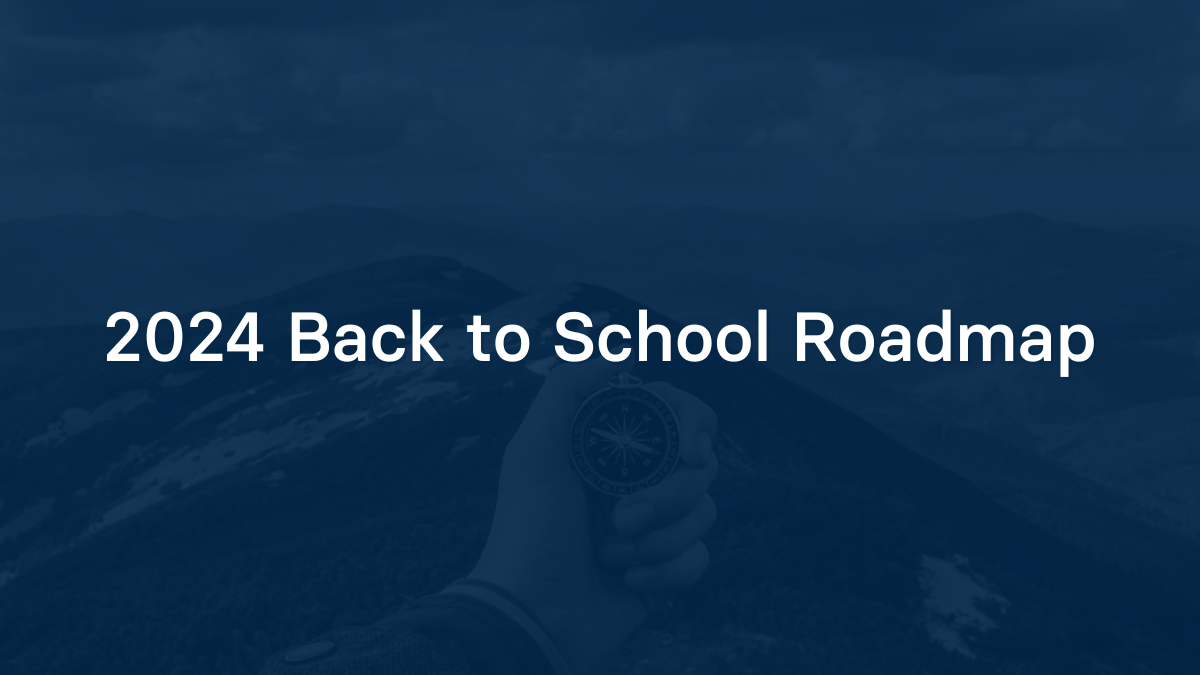Back to school is almost upon us and the Edlink engineering team has been hard at work. Here’s a preview of some of the things you can expect us to ship in the next 8 weeks.
This is a long one, so here's a TL;DR and some quick links to each section:
- Improvements to Data Previewing
- Simplified District Admin Interface
- Deprecating Sections
- Toddle & Genesis Integrations
- API Firewall
- OpenID Connect SSO
- API + LTI 1.3 Connections
- Audit Logs
- Product Usage Breakdowns
- Push Notifications and Webhooks
- Onboarding Instances
- Other Features (In Case You Missed It)
Improvements to Data Previewing
One of the most powerful parts of the Edlink platform is the ability to arbitrarily transform and filter data to meet your needs. But big datasets (one district may have millions of records) and infinite flexibility brings unique challenges. One of those challenges is previewing the changes you’re about to make to a dataset.
Our data previewer (codenamed “Blink” internally) is one of the most technically complex and intricate parts of our product and we’re very proud of how far it’s come. With that said, there’s still a lot of room for improvement.
This year, we’re rewriting it from scratch in an effort to dramatically improve loading times to make your common workflows (e.g. creating Sharing Rules) as painless as possible.
Simplified District Admin Interface
One of the common pieces of feedback we receive is that our district admin UI is too complicated and doesn’t allow administrators to quickly do the tasks they need to do. Whether it’s setting sharing rules, applying product licenses, or fixing a broken sync, the current interface is too hard to figure out. We hear you.
This back to school, you can expect to see dramatically simplified UIs for district admins so it will be much easier for them to navigate and complete their tasks efficiently and painlessly.
Deprecating Sections
If there’s one thing that’s been consistently hard for us to explain, it’s the existence of Sections in our data model (note, not to be confused with Clever’s “sections”, which we call “classes”). Sections were originally implemented to smooth out some of the unique behavior in Schoology and Canvas (linking sections and cross listing, respectively).
Sections turned out to be more trouble than they were worth, and we’ve slowly started to remove them from our system. We spent a large part of 2023 rewriting the bulk of our Canvas and Schoology code to eliminate sections from our API. New districts that have connected via Edlink during 2024 are already using the new code, but we have to go back and flip the proverbial switch on the thousands of existing districts connected to Edlink.
If you want to read more about the deprecation of sections, I wrote about it here.
Toddle & Genesis Integrations
Back to school 2024 brings two new platforms to our repertoire: Toddle and Genesis. We’re excited to roll out our integrations with these new platforms and we hope that this additional market coverage makes life easier for your districts.
Toddle is a learning platform primarily focused on IB and independent schools. For now, our integration work is focused on SSO and rostering, but we might extend support to assignment and gradebook integration in the future.
Genesis is an SIS focused on K12 districts in New Jersey. Our integration with Genesis supports essential rostering.
If you’re interested in our full list of integrations, you can check it out here.
API Firewall
We’re adding a new application security feature to the Edlink Dashboard: API firewalls. In the next few weeks, you’ll be able to add IP address rules to your application to help prevent unauthorized access to school data in the event that your application keys were to become compromised.
OpenID Connect SSO
We’ve traditionally offered only OAuth 2.0 as a protocol for implementing SSO via Edlink, but we’re happy to announce the release of OIDC. This will allow you to more easily connect with authentication systems like AWS Cognito and it may provide an additional layer of protection against certain man-in-the-middle attacks.
Please note, this is not related to our support for OIDC-based district systems. We’ve supported OIDC on the district side for a couple of years now. This improvement only applies to the connection between your product and the Edlink API.
API + LTI 1.3 Connections
Since Edlink’s inception, we’ve supported SSO via the LTI 1.1 Specification as a district SSO method in addition to our native API-based integrations. We’re happy to announce that we’re also making SSO via the LTI 1.3 Specification available for API-based integrations.
Audit Logs
Knowing who changed what and when is important. Although we (technically) have request logs available in the Edlink dashboard, we wanted to make changes easier for you to see at a glance. Keep an eye out for audit logs appearing throughout the Edlink Dashboard this back to school season.
Product Usage Breakdowns
As Edlink has grown in size and complexity, so have our challenges in accurately capturing the usage of the Edlink platform. During Q1, we rolled our our new automated billing system and it’s been running smoothly so far. The next set of updates are bringing a better level of visibility to how statistics are captured and how your final invoice is calculated each month without you having to request this information from your Edlink client success manager.
Push Notifications and Webhooks
Keep an eye out for our new push notification and webhook features. You’ll be able to register to receive notifications when certain events happen within the platform (e.g. when new roster events are available) so your product can react accordingly.
Push notifications will be first up (via AWS SQS or GCP Pub/Sub) and webhooks will likely be shipped sometime during Q4 of 2024.
Onboarding Instances
District onboarding at scale is a tough problem. It can really help if the system is as automated as possible, and onboarding instances are designed to help with this process.
In the past, all districts and universities would onboard via your application’s “Integration Link”. When the district admin finished their connection, it would become available to you via our API, but it was tricky to figure out (in an automated way), which district had just finished connecting.
With our upcoming onboarding APIs, you can now create custom onboarding links where each link belongs to a specific district. These links can be customized (e.g. to request that a district connect a particular SIS or LMS) and most importantly, you can automatically determine when a specific district has finished their connection.
In Case You Missed It
Here are a few things that we’ve shipped recently in case you haven’t seen them:
- You can now specify default data transformations that will be applied automatically to every new integration.
- We added a new checkbox to the “Share By Person” rule type so that you can choose to include or exclude the class enrollments for shared people.

